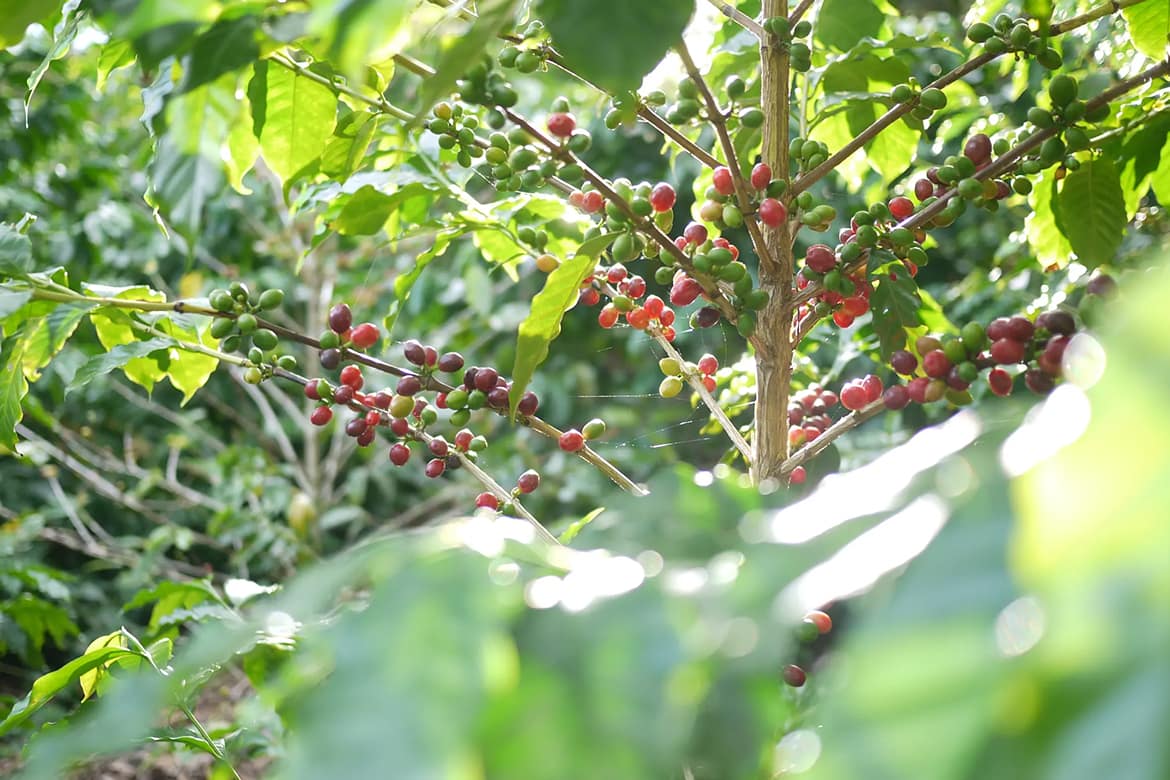The future of coffee production relies heavily on the creation of new, more resilient coffee varieties. Pests, disease, and climate change all threaten overall yields, hamstringing a supply that is already struggling to meet and increasing demand. New varieties bred to purpose may offer at least a partial solution.
Since 2015, World Coffee Research has been developing new F1 hybrids that will be more resistant to climate change while also possessing a high cup quality. Now, nine years later, they have selected four new varieties to move to the pre-commercial stage of testing to see how they perform in real-world conditions.
Announced via press release, these hybrids are the four that performed the best in the Phase 1 trials back in 2022. Each hybrid is a cross between Sarchimor and Gesha, the former possessing higher yields, leaf rust resistance, and the ability to grow well at lower altitudes, while the latter is renown for its cup profile. The hybrids are hoped to have the positive attributes of both parent plants.
With the next phase of testing, the pre-commercial phase, WCR will soon find out. Teaming up with member companies that bid to take part in the trials, a total of 10,000 of these hybrids will be planted on 10 trial plots in Costa Rica, Guatemala, and Peru to understand how they perform in real-world commercial environments. The companies taking part in the trial include “Counter Culture Coffee in collaboration with Aquiares Estate, Cafcom, Blue Bottle Coffee in collaboration with Los Volcanes, Falcon Coffees Peru in collaboration with CENFROCAFE, Starbucks’ Alsacia Farm, and Volcafe Peru in collaboration with Starbucks.”
The trials will continue over the next six years, during which time WCR and its partners will be regularly evaluating the hybrids for pest and disease resistance as well as overall yield to see which conditions the varieties are most suited to. The coffees will also be evaluated for their flavor quality.
“With this new cycle of evaluation we are looking to learn more of how these hybrids perform in real-life environments in farmer fields and determine if any of them can add value for coffee production in the future,” says Emilia Umaña, Senior Manager of WCR’s Nursery Program. “Additionally, we want to better understand the system for incorporating new materials responsibly into the market—paving the way for many future releases.”
At the end of the trials, if one of the new hybrids proves to be superior and outperforms extant varieties, WCR will then work to distribute the F1 on a much larger scale to the global network of coffee producers who may benefit from it.
For more information on the pre-commercial trials, visit World Coffee Research’s official website.
Zac Cadwalader is the managing editor at Sprudge Media Network and a staff writer based in Dallas. Read more Zac Cadwalader on Sprudge.
<?php echo adrotate_group(54); ??><?php echo adrotate_ad(589); ??><?php echo adrotate_group(56); ??><?php echo adrotate_ad(589); ??><?php echo adrotate_group(69); ??><?php echo adrotate_ad(589); ??><?php echo adrotate_group(38); ??><?php echo adrotate_ad(589); ??><?php echo adrotate_group(51); ??><?php echo adrotate_ad(589); ??>
Zac Cadwalader
July 30, 2024


